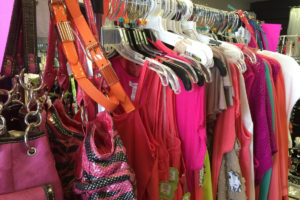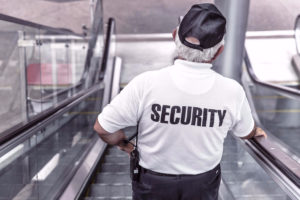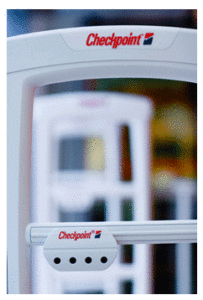 The retail industry loses an approximate $45 billion a year due to shoplifting, organized retail crime, merchant, and clerical errors. For the small retail owner, any loss due to shoplifting puts a financial strain on their ability to do business, hire more personnel or invest and grow their business.
The retail industry loses an approximate $45 billion a year due to shoplifting, organized retail crime, merchant, and clerical errors. For the small retail owner, any loss due to shoplifting puts a financial strain on their ability to do business, hire more personnel or invest and grow their business.
The competition in every industry is brutal, and the retail industry is no different. The online option the customer has of buying whatever they need or want with the click of a button is especially hard for a small retail owner. Their inventory and profit margins they’re dealing with are nothing compared to the big-box chains’, and any loss they suffer is particularly painful for their profits.
There are many businesses that cannot afford to invest in new technology to deter or prevent shoplifting, and they are left with the option of losing more cash and inventory or close their doors permanently, all due to this crime. But, if they cannot invest in technology, and they cannot hire more personnel, what are some low-cost options they can implement in their store to deter or prevent shoplifting?
- Customer Service
One of the great assets these small retail stores have compared to the big chains or online stores is the customer service they can provide to their customers. Providing the customer with a greeting when they walk into your store and offering them great customer service has shown to decrease shoplifting and increase customer satisfaction.
A satisfied customer is also more likely to promote your business. In today’s social network platforms, a bad experience can potentially reach thousands of customers with disastrous backlash for you and your store, but a good experience can also do the same, it can reach many potential customers that want to do business with you. Treat your customers as a business ambassador for your business, and you will see the results in your profits.
2. Inventory
Keeping a good inventory of what’s selling and the number of items you are missing-whether they were sold or stolen-from the shelves can help you keep an accurate count of the merchandise.
Do you know at a minute’s notice what inventory you have on hand? There are software solutions that help retailers keep track of such matters, and allows them to have reports daily and online to help them make adjustments, order more inventory if necessary, and know at a moment’s notice the state of their inventory.
3. Organization
The design, cleanliness and how well your product displays are kept are important in keeping shoplifting at a minimum. Well lit aisles, merchandise displayed properly and organized can make the shelves look pretty and the items displayed can allow you and your employees to account for the merchandise with a quick look to the shelves.
4. Diligence
Your employees are your best bet to deter and prevent shoplifting. Research has shown happy employees are the best asset your company has for success, and in this case to deter and prevent shoplifting. Salaries are not the only incentive your employees look for when entering a new business, treating them with respect and allowing them the ability to prove and express themselves are key to the success of any business.
Shoplifting affects every citizen and every member of society. The way you respond to a shoplifting accident and the way you treat shoplifters reflect on how you conduct yourself and your business.
 You think that you may be scoring a great deal on cheap, knock-off Electronic Article Surveillance (EAS) hard tags and labels, however, over time you find that you are missing shoplifters due to poor pick rates or hard tags that are easy to defeat. Why? To make real, quality EAS hard tags and labels it takes more effort and time. The materials and sophistication of the circuit is not something that can be easily done by a slave laborer in some dark factory in a third world nation. The labels we sell are all high-quality EAS labels and tags that are both Sensormatic and Checkpoint Systems compatible.
You think that you may be scoring a great deal on cheap, knock-off Electronic Article Surveillance (EAS) hard tags and labels, however, over time you find that you are missing shoplifters due to poor pick rates or hard tags that are easy to defeat. Why? To make real, quality EAS hard tags and labels it takes more effort and time. The materials and sophistication of the circuit is not something that can be easily done by a slave laborer in some dark factory in a third world nation. The labels we sell are all high-quality EAS labels and tags that are both Sensormatic and Checkpoint Systems compatible. In every career, there are people, places, and things that help to shape who you become in that career. A Retail Loss Prevention career is no different. My career in Loss Prevention goes back nearly 27 years. A long time ago in a department store not far away I was hired as a Loss Prevention Associate with only my military experience and a college degree in hand. I had absolutely no Loss Prevention background. There have been lessons learned along the way that shaped the way I approached Loss Prevention and the way I developed my style of working with people and managing others.
In every career, there are people, places, and things that help to shape who you become in that career. A Retail Loss Prevention career is no different. My career in Loss Prevention goes back nearly 27 years. A long time ago in a department store not far away I was hired as a Loss Prevention Associate with only my military experience and a college degree in hand. I had absolutely no Loss Prevention background. There have been lessons learned along the way that shaped the way I approached Loss Prevention and the way I developed my style of working with people and managing others. How many times have you caught yourself in a conversation with another manager or a supervisor discussing a seasonal merchandise question or an inventory preparation question and found yourself saying, “I think we did it this way” or “ It seems to me customers were buying such and such last year”? It can be frustrating, especially when the discussion may influence whether an item should be carried or if it was carried the prior year was it a flop? The same thing happens with inventory. Did we start prepping 5 days out? No? Maybe it was 3 days out. Having checklists can make these conversations fewer in number and improve productivity as well as sales performance.
How many times have you caught yourself in a conversation with another manager or a supervisor discussing a seasonal merchandise question or an inventory preparation question and found yourself saying, “I think we did it this way” or “ It seems to me customers were buying such and such last year”? It can be frustrating, especially when the discussion may influence whether an item should be carried or if it was carried the prior year was it a flop? The same thing happens with inventory. Did we start prepping 5 days out? No? Maybe it was 3 days out. Having checklists can make these conversations fewer in number and improve productivity as well as sales performance.
 The laws in the United States concerning shoplifting undergo changes that in some instances put the strain on the retailers and their profit margins.
The laws in the United States concerning shoplifting undergo changes that in some instances put the strain on the retailers and their profit margins. We supply and install the best anti-shoplifting equipment made. Checkpoint Systems is the gold standard of Electronic Article Surveillance (EAS) equipment. Support is off the chart. Checkpoint Systems has factory Tech’s everywhere, I mean EVERYWHERE. They have to since the majority of the top retailers in the world are using Checkpoint equipment. These Techs are not sub-contractors. They are skilled EAS, Radio Frequency (RF) experts. As an example, my Sr. Tech Dan is a former Navy Electronics Technician; he worked on highly advanced systems that protect our country.
We supply and install the best anti-shoplifting equipment made. Checkpoint Systems is the gold standard of Electronic Article Surveillance (EAS) equipment. Support is off the chart. Checkpoint Systems has factory Tech’s everywhere, I mean EVERYWHERE. They have to since the majority of the top retailers in the world are using Checkpoint equipment. These Techs are not sub-contractors. They are skilled EAS, Radio Frequency (RF) experts. As an example, my Sr. Tech Dan is a former Navy Electronics Technician; he worked on highly advanced systems that protect our country. Inventory in a retail store can offer the management and the loss prevention team a clear picture of whether their efforts are working or they need to modify something entirely different.
Inventory in a retail store can offer the management and the loss prevention team a clear picture of whether their efforts are working or they need to modify something entirely different.  Shoplifters seem to be getting bolder than ever. Much of this is greed. Many people simply want stuff and have no moral compass. Others are emboldened by lax law enforcement or Politicians that pass laws that do little to protect you. Whatever the case be, it has a negative impact on Retailers. We are expected to open our stores, compete, pay employees, pay expenses, taxes…. And make a profit. Shoplifting theft is yet another pressure on us.
Shoplifters seem to be getting bolder than ever. Much of this is greed. Many people simply want stuff and have no moral compass. Others are emboldened by lax law enforcement or Politicians that pass laws that do little to protect you. Whatever the case be, it has a negative impact on Retailers. We are expected to open our stores, compete, pay employees, pay expenses, taxes…. And make a profit. Shoplifting theft is yet another pressure on us.